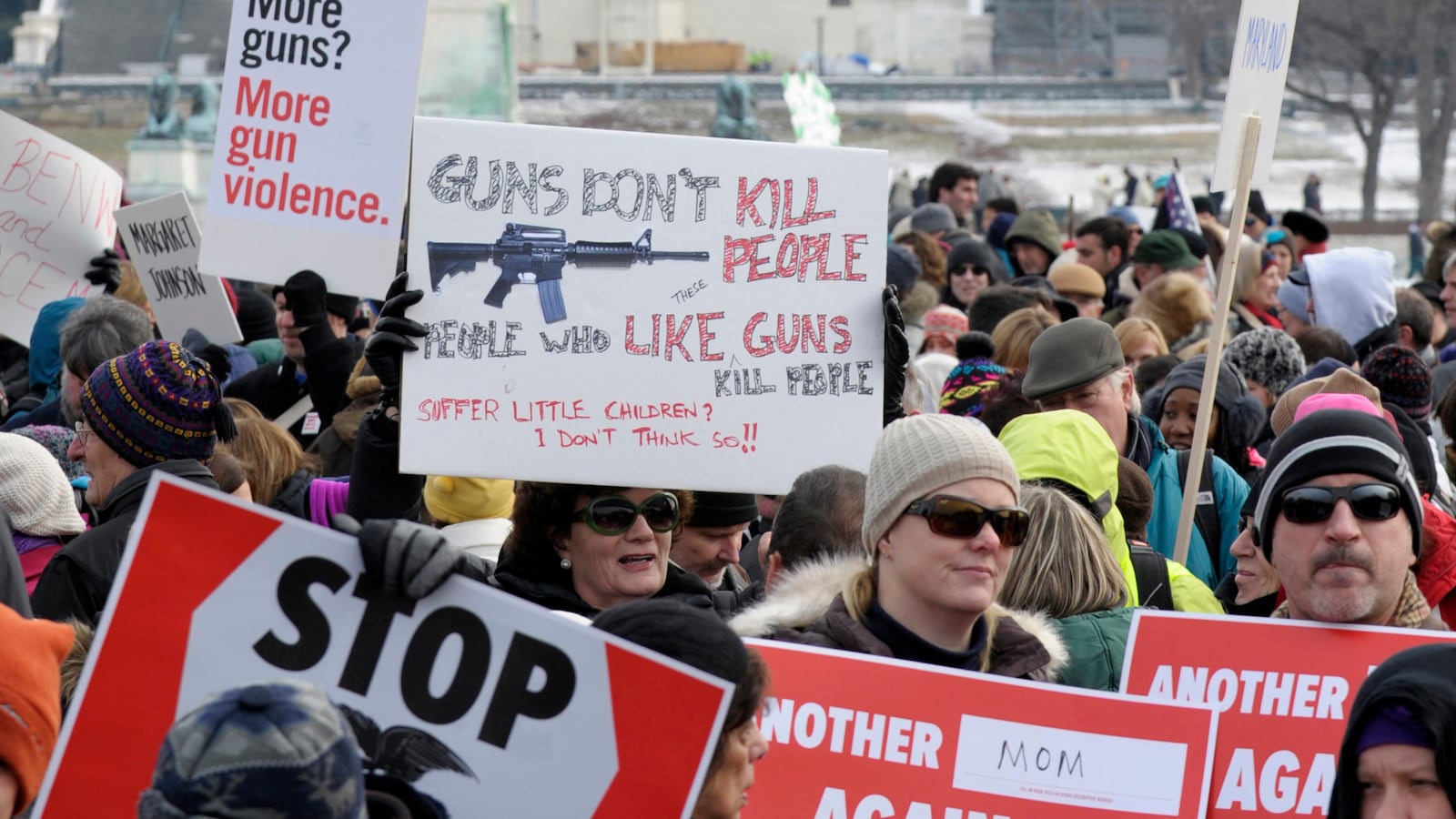Bill Clinton got an assault-weapons ban passed in 1994, and Democrats went on to lose both houses of Congress that year. The betting is that President Obama won’t get an assault-weapons ban—but that this could be the Democrats’ ticket to winning back the House in 2014.

Clinton won the battle, but he lost the war, says David Gergen, who served in his White House. Gergen believes the outcome for Obama could be the mirror image, an issue that isolates the opposition and rallies the Democratic base for the midterm elections.
“Anyone who’s been in politics for a long time would say there’s no chance in the sixth year of a presidency to gain seats in the House, let alone take back the House,” Gergen tells The Daily Beast. “But they feel they’ve got a shot. And if he wins in 2014, he can govern the way he wants to. And if he doesn’t, he still has an issue to rally the base.”
The sensitivity of the subject was underscored Wednesday when Gabby Giffords, struggling to speak, offered emotional testimony at a Senate hearing on gun violence.
When the Democrats lost Congress nearly two decades ago, there were other factors at work besides the assault-weapons ban. Two years of bickering and a spectacular implosion of “Hillarycare,” legislation crafted by the first lady, had soured people on government. Clinton rallied and had a productive second term, even gaining House seats in 1998, but “he felt very wounded” by the 1994 loss, says Gergen.
Obama got his comeuppance in 2010 when the GOP won the House. The fallout from that loss blocked much of Obama’s agenda, and what is noticeably different about his second term is Obama’s focus on keeping together the coalition he built for his reelection.
For those who came of age during the height of wedge-issue politics, it would be a stunning turnabout if the gun issue proved a plus for Democrats. Norm Ornstein of the American Enterprise Institute, a conservative think tank, is skeptical of Gergen’s thesis. Obama, he says, “wants to be a consequential president. I don’t think he wants issues nearly as much as he wants accomplishments ... He’s seizing on a moment that’s long overdue, and there may be some political upside” because of the strong visceral reaction to the tragedy in Newtown, Connecticut, but there’s also risk.
“If you’re Collin Peterson sitting in a district in Minnesota filled with ardent gun owners, you’d rather this didn’t come up,” says Ornstein. A handful of senators representing red states face reelection, with the recently announced retirement of Iowa’s Tom Harkin adding additional uncertainty. “There’s a thin line to keep that majority,” adds Ornstein.
The Democrats lost 63 House seats in 2010, but Gergen doesn’t see that happening again. “Gun control is one way to keep the base engaged,” he says.
A lot has changed in the 18 years since Clinton lost the Congress, but not everything, cautions William Galston, who was Clinton’s domestic policy adviser. Pro-gun, conservative Democrats have come to the conclusion they can’t defend in public the obstacles to background checks built into the law, but whether that will shift enough seats in the House to move the majority is questionable. The Republicans successfully gerrymandered House districts so they kept control in the 2012 election, despite a million more votes cast for Democrats.

“I confidently predict that a lot of red-state Democrats [in the Senate] will vote in favor of expanded background checks and against an assault-weapons ban. That’s the political sweet spot, and that’s where they’ll be—and they don’t think that will hurt them,” says Galston. Testifying before the Senate committee Wednesday, National Rifle Association head Wayne LaPierre said his organization would oppose universal background checks. “That’s an insane move,” says Galston, calling the NRA “a front organization for the gun manufacturers.”
When the NRA looks radical, that helps the cause of gun-violence prevention, but Galston says in politics it’s intensity that matters. Change will come if as many people on the pro-gun-safety side feel as strongly as the pro-gun-rights advocates.
Newtown was a tipping point; polls show the public strongly in favor of expanded background checks and limits on the size of gun magazines. We’ve seen similar numbers before, after the Giffords shooting in Tucson, Arizona, after Columbine. If the issue were decided on public-opinion numbers alone, there would have been legislative action a long time ago.






